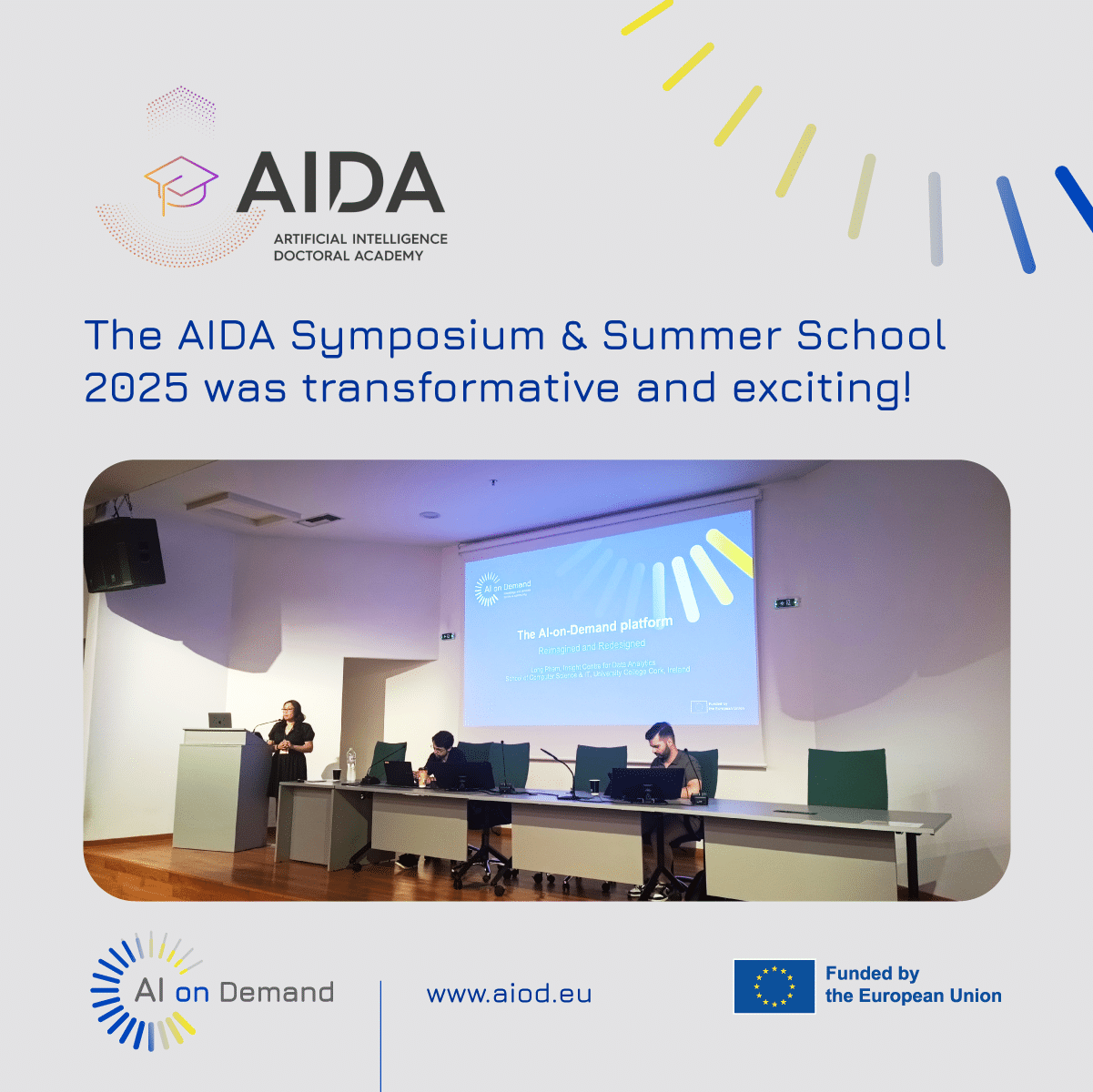From Design Thinking to Language Technologies – KInIT at the AIDA Summer School in Greece

This summer, the picturesque setting of Greece became a hub for doctoral students in AI during the AIDA Summer School, where researchers from AI4Europe had the privilege of leading two interactive workshops that brought together creativity, ethics, and advanced language technologies.
Andrea Hrckova, senior researcher in Kempelen Institute of Intelligent Technologies, opened our contribution with a session inspired by findings from our AI4Europe interviews with AI PhD students, which revealed a common challenge: the lack of human involvement in academic AI research. To address this, Andrea introduced the Design Thinking methodology – a practical, user-focused approach to involving stakeholders in AI research and creating tools that are both useful and desirable. Showcasing her experience (also from the AI4Europe project), she guided participants through the various stages of Design Thinking, from empathising and ideation to prototyping.
The hands-on part challenged students to design conversation flows for a chatbot addressing real AI ethics issues from their own research. Along the way, they explored AI ethics frameworks for inspiration, gaining both methodological skills and a deeper understanding of ethical principles. The chatbot concepts and ethical insights from this session will also contribute to the European project ALFIE, connecting it meaningfully with AI4Europe.
To wrap up the summer school, Martin Tamajka, the Tech Lead from Kempelen Institute of Intelligent Technologies, took the stage with a 4.5-hour deep dive into Language Technologies in his workshop “How to work with Language Technologies: Practical approach.” After five days of cutting-edge AI content, Martin delivered an intensive and engaging session covering the fundamentals of Natural Language Processing, from open-source and proprietary large language models like ChatGPT and LLaMA to advanced applications such as retrieval-augmented generation (RAG).
In true hands-on style, Martin’s exercises – inspired by a fictional “AI School of Magic” – let participants experience RAG in action, proving that while AI isn’t magic, it can still work wonders 🪄🤖. He also introduced the AI-on-Demand platform, managed by both AI4Europe and DeployAI projects, showing how it can be integrated into complex scenarios like RAG.
Both workshops demonstrated the commitment of AI4Europe to equip future AI researchers with practical skills, ethical awareness, and innovative thinking – ensuring that the AI tools of tomorrow are not only powerful but also responsible and human-centered.



